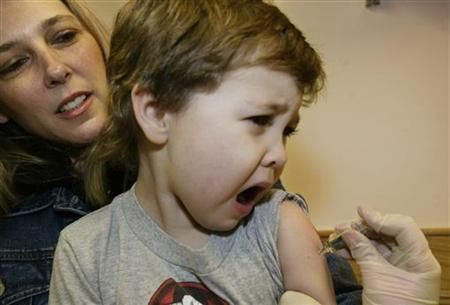Sleep Closely Linked To Better Behavior Among Children, Says New Study

If you have kids with behavioral problems and are unable to diagnose the reason, check if they are sleeping adequate number of hours.
A new study supported by the Natural Sciences and Engineering Research Council of Canada and the Canadian Institute of Health Research noted how a little extra sleep can make a big difference to behavior of children at school.
An average of about an additional 27 minutes of sleep than usual hours helps school-aged children to stay focused and productive the following day.
Apparently, kids who slept the additional 27 minutes were less impulsive, less distracted, less likely to throw temper tantrums or less prone to crying frequently and often, WebMD has reported.
The study led by Reut Gruber of McGill University in Montreal noted that taking away an hour of sleep among kids in the age group of seven-to-eleven had the opposite effect that were reported in the November issue of Pediatrics.
"Healthy sleep is essential for supporting alertness and other key functional domains required for academic success," the group wrote, adding: "Sleep must be prioritized, and sleep problems must be eliminated."
Apparently 43% of boys in the age group of 10 to 11 do not receive the recommended sleep and almost two-thirds of children in the school going age never sleep by 9 p.m., Gruber and colleagues observed, according to Medpage Today.
The research involved a relatively small sample of 34 kids aged seven to eleven and hence the findings may be considered to be preliminary in nature.
The study spanned one week of school, where half the number of students were put to bed earlier making room for enabling 27 minutes of more sleep, while other half were made to stay awake later than bedtime, losing 54 minutes each evening.
Results showed how students who had inadequate hours of sleep appeared overly tired, more impulsive and irritable than their well-rested classmates. Quick to cry, they lost their tempers or got frustrated easily, whereas children who slept well handled their emotions better and were more alert in class.
"We know that sleep deprivation can affect memory, creativity, verbal creativity and even things like judgment and motivation and being (engaged) in the classroom," Dr. Judith Owens, director of sleep medicine at Children's National Medical Center in Washington told CNN. "When you're sleepy, (being engaged) isn't going to happen," he added.
Apart from having trouble in coping with day-to-day situations, inadequate hours of sleep impact social skills of the children involved, CNN has stated.
Children aged between five and twelve need 10 to 11 hours of sleep a night, according to the National Sleep Foundation.
Among the symptoms cited for inadequate sleep among kids are yawning, drowsiness, hyperactivity, crankiness, impulsiveness, and a short attention span.
Parents who seem keen to inculcate better behavior among children would do well to have consistent bed time and wake time for their wards, be a role model for their children and consider sleep as an essential building block for their child's health, well-being and academic success, CNN has added.
© Copyright IBTimes 2025. All rights reserved.





















